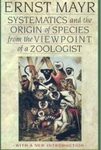By: Michael J Reiss(Author), Michael Ruse(Author)
304 pages, 4 photos, 8 illustrations
![The New Biology The New Biology]()
Click to have a closer look
About this book
Contents
Customer reviews
Biography
Related titles
About this book
In this accessible analysis, a philosopher and a science educator look at biological theory and society through a synthesis of mechanistic and organicist points of view to best understand the complexity of life and biological systems.
The search for a unified framework for biology is as old as Plato's musings on natural order, which suggested that the universe itself is alive. But in the twentieth century, under the influence of genetics and microbiology, such organicist positions were largely set aside in favor of mechanical reductionism, by which life is explained by the movement of its parts. But can organisms truly be understood in mechanical terms, or do we need to view life from the perspective of whole organisms to make sense of biological complexity?
The New Biology argues for the validity of holistic treatments from the perspectives of philosophy, history, and biology and outlines the largely unrecognized undercurrent of organicism that has persisted. Mechanistic biology has been invaluable in understanding a range of biological issues, but Michael Reiss and Michael Ruse contend that reductionism alone cannot answer all our questions about life. Whether we are considering human health, ecology, or the relationship between sex and gender, we need to draw from both organicist and mechanistic frameworks.
It's not always a matter of combining organicist and mechanistic perspectives, Reiss and Ruse argue. There is scope for a range of ways of understanding the complexity of life and biological systems. Organicist and mechanistic approaches are not simply hypotheses to be confirmed or refuted, but rather operate as metaphors for describing a universe of sublime intricacy.
Contents
Prologue
1. Mechanism Triumphant
2. Organicism Strikes Back
3. The New Biology
4. Health
5. Sex and Gender
6. Race
7. Mother Earth
8. God and the New Biology
9. Biology Education
Epilogue
References
Acknowledgments
Index
Customer Reviews
Biography
Michael J. Reiss is a Professor of Science Education at University College London, a member of the Nuffield Council on Bioethics, President of the International Society for Science and Religion, and former Director of Education at the Royal Society.
Michael Ruse is the former Lucyle T. Werkmeister Professor of Philosophy at Florida State University and Professor Emeritus of Philosophy at the University of Guelph. He is a Guggenheim Fellow, a Fellow of the Royal Society of Canada, a Gifford Lecturer, and the author or editor of more than sixty books.
By: Michael J Reiss(Author), Michael Ruse(Author)
304 pages, 4 photos, 8 illustrations
"A feisty, engaging, and highly readable exploration of contemporary trends in biology. This book makes a compelling case for recovering organicist approaches to biology if we are to understand the complexity of life and biological systems."
– Alister McGrath, Andreas Idreos Professor of Science and Religion, University of Oxford
"Since the time of Aristotle, the nature of living systems has been a topic of major philosophical and scientific debate, enhanced by the rise of molecular biology and the sciences of emergent complexity during the twentieth century. In lucid prose, Reiss and Ruse reveal how the debate is extremely relevant to our lives today."
– Bruce Weber, coauthor of Darwinism Evolving
"The mechanism-holism debate undergirds much of the history and philosophy of biology, but it is often cast as a stale topic fraught with abstractions about the properties of life. This book offers us a lively, engaging, and occasionally provocative rethink about an age-old topic that is very much alive and relevant to contemporary biology today."
– Vassiliki Betty Smocovitis, University of Florida
"A fascinating exploration. Reiss and Ruse offer a clear roadmap for a better understanding of complexity and emergence across the life sciences, vital for evolution, behavioral science, science education, and science's conversation with faith."
– Joe Cain, Professor, University College London
"Science is often portrayed as an objective quest for truth, not influenced by the social, cultural, historical, and religious contexts in which it is practiced. In this splendid book, Michael Ruse and Michael Reiss show that science has always been, and will likely always be, in reciprocal influence, and in continuous interaction, with the many ways through which we perceive the world. Reading this book will make you see science in a brand new way."
– Kostas Kampourakis, coauthor of Uncertainty: How It Makes Science Advance
"This is an informative, clearly written, and timely exploration of the historical roots and the current uses and misuses of the notions of mechanism and organicism. The insights in this book could lead to richer methodologies and better coping mechanisms across health, gender, race, ecological sustainability, and religion."
– Eva Jablonka, author of Picturing the Mind: Consciousness through the Lens of Evolution



































